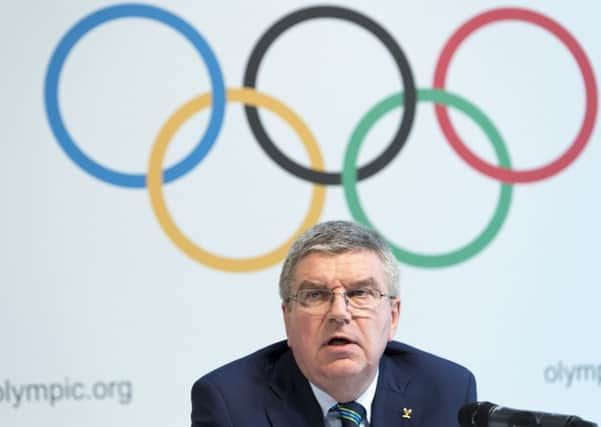Russians and Kenyans must prove innocence to compete in Rio


This unprecedented step was unanimously agreed at an emergency summit convened by the International Olympic Committee in Lausanne.
With the World Anti-Doping Agency declaring both Kenya and Russia “non-compliant” with its rules, IOC president Thomas Bach said athletes from those countries could no longer be “presumed innocent”.
Advertisement
Hide AdAdvertisement
Hide Ad“The conclusion of the summit was that this non-compliance declaration, and the substantial allegations related to it, put very serious doubts on the presumption of innocence for athletes coming from these two countries,” said Bach.
“Therefore, each athlete coming from these two countries will have to be declared eligible by their respective international federation following an individual procedure and evaluation of the situation.
“And in this individual evaluation, tests from laboratories that are tainted or non-compliant, cannot be taken into consideration.
“The respective (international federation) will have to take into account other reliable tests, that means international tests, or tests supervised by international authorities.”
This decision represents an emphatic vote of confidence for the International Association of Athletics Federations’ (IAAF) decision on Friday to maintain the ban on Russia’s athletics federation.
Not only did this gathering of international sports federations, national Olympic committees and athletes’ representatives support the IAAF stance in its own sphere of influence, it recommended it to the rest of the Olympic movement.
This is represents a concerted effort to get behind the World Anti-Doping Agency’s attempt to enforce its Code - the set of anti-doping rules that are meant to govern most elite sports.
The Montreal-based agency has currently declared four countries’ anti-doping agencies non-compliant with the Code but two of those, Mexico and Spain, are for largely administrative and legal reasons that are in the process of being rectified.
Advertisement
Hide AdAdvertisement
Hide AdThe situation in Kenya and Russia, however, is very different, as Bach pointed out.
“In Kenya, there were administrative issues that are about to be resolved,” he said.
“But on top of this we’ve had in the last couple of months a lack of funding and - I hope I quote the president of the IAAF (Lord Coe) accurately here - an absence of national testing.
“So Kenya is considered to be a country where the non-compliance affects the doping controls. It is a lack of funding and attention.
“And in Russia, you have serious allegations about the manipulation of the anti-doping system.
“But they both lead to the same challenge and we have to ensure there is a level playing-field.”